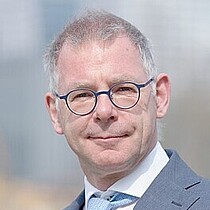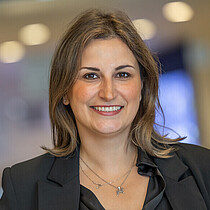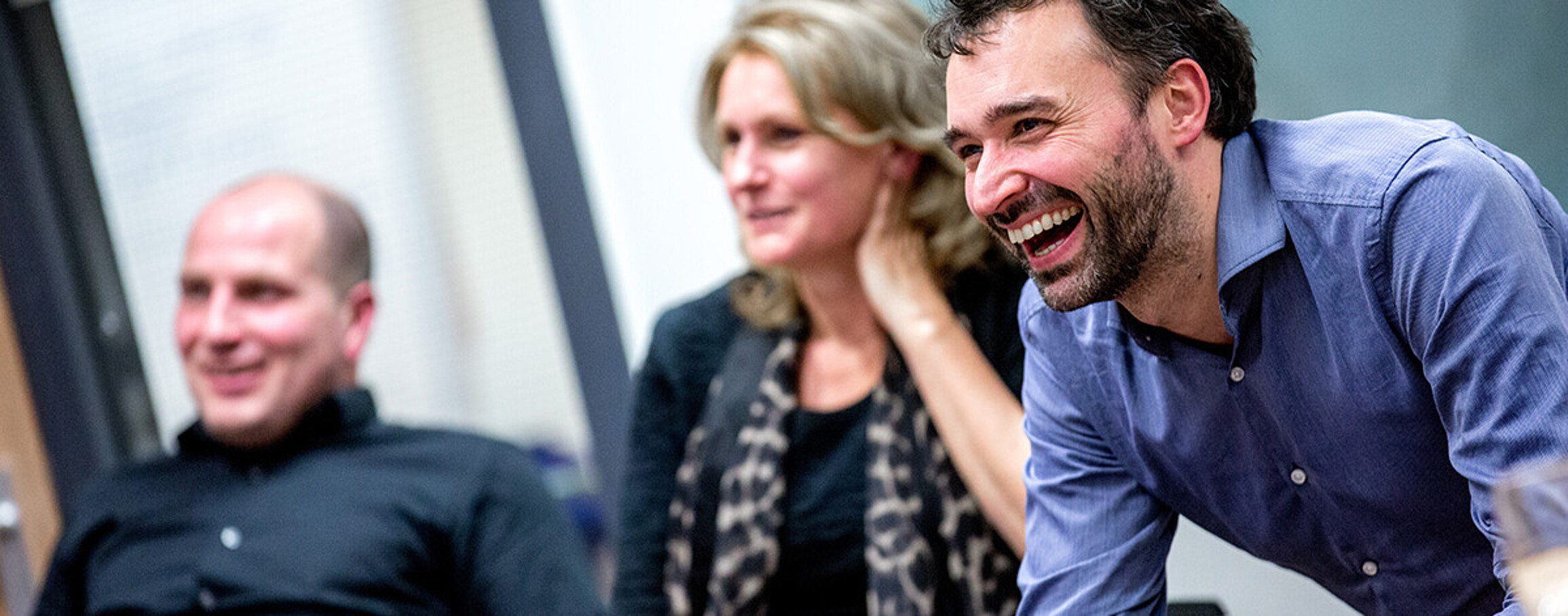Harry Petersen
Senior programme manager at Rabobank
Using my learning at RSM, we envisioned the journey, planned the project step-by-step, and wrote a business case – all in a short time. The techniques I learned in the programme really helped us to engage people and keep the momentum going.What I like about this programme is that you combine design thinking with a business and financial perspective. In short; you use design thinking to derive value.

Learning from the Diploma Programme in Digital Transformation
Taking your business forward sometimes means learning to use techniques for structures that embrace change and can turn digital disruption from threat into opportunity. This is the aim of the Diploma Programme in Digital Transformation, a modular programme from Rotterdam School of Management Erasmus University (RSM). Here’s the experience of Harry Petersen, a senior programme manager at Rabobank, who completed the RSM programme.
Rabobank has a large digital transformation office, but its ‘normal business lines’ must also transform so they can react better to regulatory, market and external developments. Harry’s team wants to improve its way of working using digital innovation. “It triggers a different way of looking at what you’re doing, working towards achievements, and tackling challenges on the way,” he says.
Harry has an influential role, coaching management teams and programme managers. As he began RSM’s Diploma Programme in Digital Transformation, his team was building a modelling platform to increase the maturity of a department of around 500 people. Colleagues do interact with each other but tend to work separately and wanted to improve the way they worked together. They set up a project team of about 10 people. “Using my learning at RSM, we envisioned the journey, planned the project step-by-step, and wrote a business case – all in a short time. The techniques I learned in the programme really helped us to engage people and keep the momentum going.”
Harry says the three modules and his Impact Project taught him a lot. “The content is very diverse. I gained a theoretical understanding of innovation, and learned how to execute it. I now know how to bring people together.”
He also valued the diverse group of peers that included entrepreneurs and people working for multinationals. “We can learn a lot from each other’s challenges,” he comments.
Learning the theory of building models using data analytics “was very helpful, especially because of my work in quantitative research. In the final module I collaborated with business management consultant firm SparkOptimus, which specialises in disruptions. I really liked the interactive, result-driven and team-oriented approach. The RSM lecturers also made it clear how I can put my new knowledge into action.”
Integrating skills
Integrating management and innovation skills – such as visual thinking and design thinking – was new to Harry. “We explored translating that integration into usable and valuable business tools that engage people in conversation, and help them formulate what they really want to achieve, or identify what their challenges are.”
These techniques work well in a transformation towards an agile and lean company. “Rabobank wants to reshape the way it works to become more agile. What I’ve learned at RSM complements that. People are not accustomed to working with visual thinking methodologies, so it doesn’t come naturally, but when you get into the spirit of it then people really start to participate. That’s one of the most important achievements.”
Harry learned about creating journey maps and considering stakeholders’ experiences – what do they see, feel and hear? “There’s a focus on the value that you’re trying to achieve; it appears in the adapted business model canvas, as well as in how you define your steps, for example in approaches to affordable losses.
“These techniques help to enrich your mindset and prepare you for smaller steps that minimise risks, at the same time keeping your long-term objectives clearly defined and accepting that the route to those goals can change. In effect, you create a structure which embraces change.
Use design thinking to derive value
“I used Rabobank’s project in my Impact Project during the programme, albeit partly simplified. There were two aspects that I found particularly interesting.
“First, there’s a very pragmatic approach. How do you enable small scale change; how do you enable large scale change; and how do you provide a transformation roadmap?
“And there’s the secondary consideration: how do you take people along with you, and ensure they understand your aims and what the journey encompasses?”
RSM faculty members challenged him to use a variety of perspectives and helped him to sharpen his thinking. He has already used material from his Impact Project in a well-received presentation to Rabobank in Berlin, and to banking colleagues in London. “In fact I’ve presented it to some of the top minds in a large bank!”
Find a way to move forward
He is still using what he learned, and is currently coaching a globally operating legal team to transform the legal function to take into account global changes in the sector as well as changing demands from the way the firm operates. It means a deep dive into current operations before formulating a transformation roadmap. The legal team sees that visual thinking works, but finds it difficult to make it a part of how they usually work, he observed.
“What I like about using the roadmap technique is that it’s a journey, but it is not fixed in time. And what I like about this programme is that you combine design thinking with a business and financial perspective. In short; you use design thinking to derive value.
Widely applicable techniques
“The Diploma Programme in Digital Transformation is relevant for any kind of digital transformation trajectories, big or small, and within all sectors or projects because the techniques are widely applicable,” says Harry.
“It really helps you to get people to actively join a journey. You can combine it with agile and new ways of working. You understand why people oppose or support change. The project team’s analysis makes sure it considers all the areas necessary for transformation, and how to make the conversation meaningful for all stakeholders.”
Informed decision-making
“Most organisations find decision-making a complex process because you have to account for so many factors. This programme helps you to collect all the facts for a proper discussion and makes decision-making informed. If you can always make decisions this way, it helps to drive change within your organisation.
“It certainly helps us to comprehend why certain things continue – or discontinue – because the reasons become clear and explicable.”
Harry completed three modules and the Impact Project in half a year. “I could work alongside my studies, and gain hands-on experience between modules.” He had previously studied Digital Strategy with RSM, so took the three-day modules in Digital Analytics, Digital Innovation, and Digital Leadership and Change, plus the Impact Project.
For more information about the Diploma Programme in Digital Transformation, see www.rsm.nl/dpdt.
Get your personal advice

Erika Kataveli
Programme advisor
It's my priority to help you identify how you can meet your professional objectives, so reach out and let's make a plan for your personal development.
